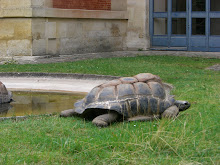A few days ago BB reported the findings of the Asian Development Bank's International Comparison Study (click here for the ADB report) and that Brunei was the richest in the region with a GDP Per Capita income of about US$34,600.
Translation: It is the amount that every person who lives in Brunei (those who make up the population) would receive yearly from the income generated through productive activities. Well, now you know what it means, please don't go march to the Ministry of Finance and demand that money! In reality, as we all know some earn more and some earn less. And of course, if the government were to spend all the money on its people then what future would lie for us? Basically Per Capita income is used as a measure of wealth i.e. the higher, the wealthier.
Now, back to the ADB's report. Should we celebrate being the richest?
Look around us, we have unemployment, people rely on government employment, the private sector is weak and the economy is far from being diversified. These, ladies and gentlemen, are the traits of a country 'cursed' with natural resources. The economic term for it is the resource curse thesis (Richard Auty, 1993) which describes how a country cannot use its wealth to boost its economy. What happens is that because the income from oil and gas (the natural resources) is so high, the economy revolves around it. The government who is the recepient of the oil income, for example, pays higher salaries then other (private) industries. As a result, everyone wants to work with the government. Another example is tax. Because Brunei is so rich, the government doesn't want/need to burden its people and as a result we may be deprived of more efficient public services.
Another negative effect of having an abundant natural resource, particularly the richly oil, is rentierism. A rentier state is a country which derives a large portion of its national revenue from a natural resource. The characteristics of a rentier state which are not favourable to the economic development, among others are limited linkages between the oil sector and the rest of economy, high dependence on import of goods, lack of economic diversification, a large import of foreign labours manning basic services and many others (which are quite sensitive but very interesting!).
Perhaps, the most negative effect of being a rentier state is the creation of a 'rentier mentality' in which rewards of income or wealth do not come from work, but come as a result of chance (Beblawi, 1990).
Anyway, to me these are all very interesting. I sincerely hope that somebody would do some research on how badly 'cursed' are we? Or should we really blame the natural resources? And what should we do to right the wrongs? And many other questions.
Oh, well it's almost midnight and my back hurts. Till then.
Salaam.
Subscribe to:
Post Comments (Atom)







3 comments:
Well done, Hjh! Nice article - really enjoy all your articles in your blog! Teaching this on-economist to understand more about economics!
Keep up the good works - I agreed that we are CURSED, badly cursed!
Take care
pretty interesting!
Good research for an interdisciplinary like me to figure the socio-psychological effects of rentierism. May be one day.
No, we are not cursed, we are spoil. Several Rentier state handle their resources quite perfectly.Back in the 80's rentier state might be at the disadvantage, because it always have to depend on US engine economy. But Today, we can clearly see there's sign of balancing in global politics.
Russia,formed Gazprom has bring a great threat to EU and US. Iran agree to co-own with some asian countries building on pipeline
throughout central asia, sending most G8 jumping like monkey and disarray. Australia, perform well diplomatically which exploit its
resource so effectively.
Again, Wanna said we are not cursed. We are spoiled. My bad,
if my english is poor.
Post a Comment